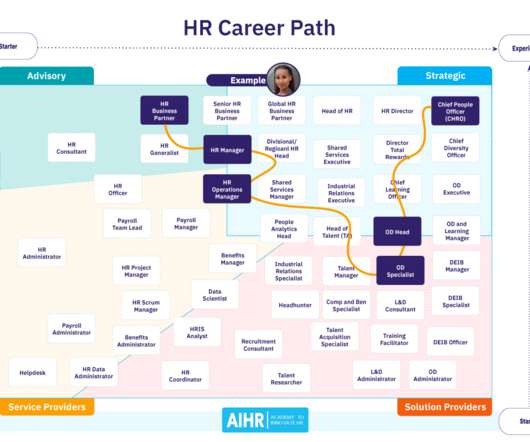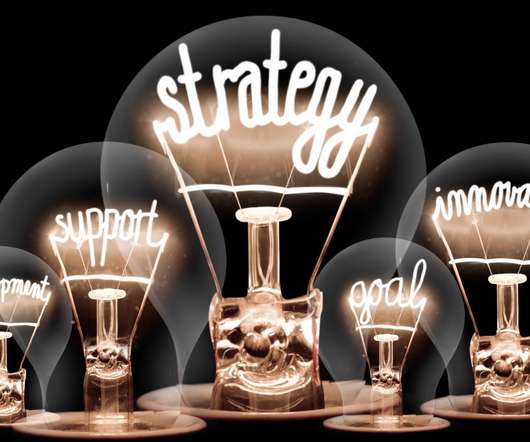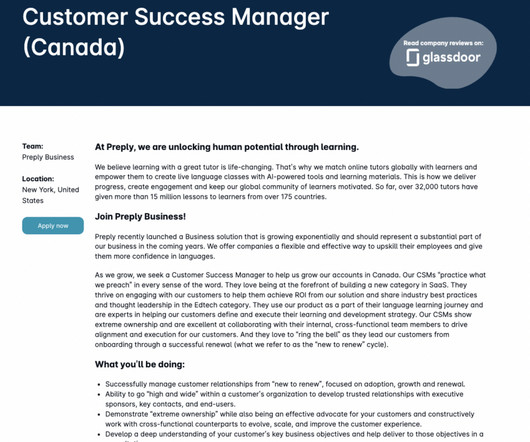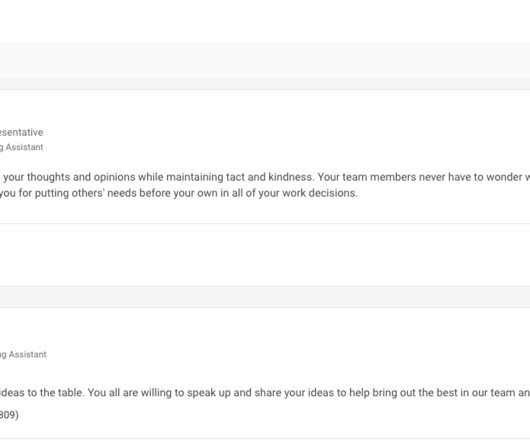Why Is a Succession Plan Important? Lessons from the Roy Family
Intoo USA
JUNE 15, 2023
.” — Siobhan (Shiv) Roy, following the death of her father With his passing, one thing is made perfectly clear—a succession plan is important to ensure business continuity, reduce risk, and prevent conflict from spilling into every part of a company. ” Reasons Why a Succession Plan Is Important 1.































Let's personalize your content